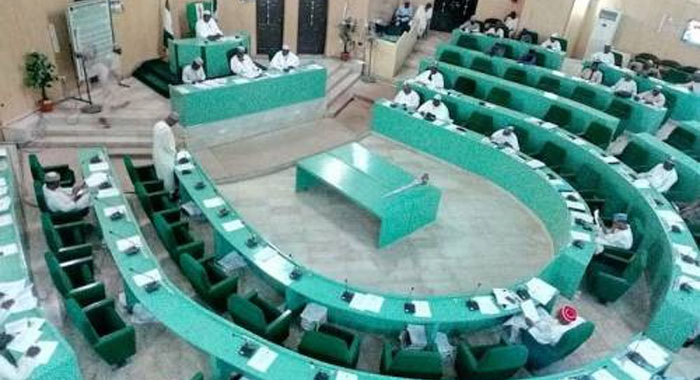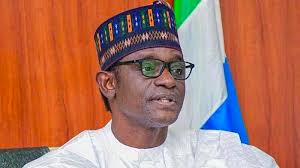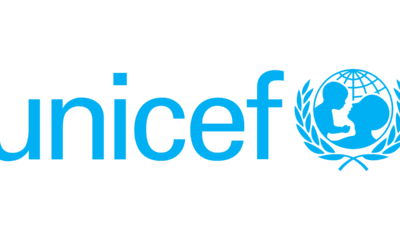Health
Nigeria accounts for 15% out of school children worldwide — UNICEF
Nigeria currently accounts for 15 percent out of school children worldwide, the United Nations Children’s Fund (UNICEF) on Wednesday revealed.
The UNICEF Nigeria Country Representative, Ms Cristian Munduate disclosed this during an event organised to commemorate this years International Day of the Girl in Kano.
Ms Munduate who raised alarm over the worrisome figures however maintained that it is not just a statistics but a wake up call on the authorities to take steps to reverse the menace.
In her words, “Nigeria, alarmingly, accounts for 15 percent of out-of-school children worldwide. Yet only a mere 9 percent of the poorest girls have the chance to attend secondary school. This is not just a statistic… it’s a wake-up call.”
“The truth is that 7.6 million girls in Nigeria, many from the northern regions, remain deprived of these very opportunities. Their seats in classrooms remain vacant, their dreams momentarily deferred. This leaves them vulnerable to early childbearing, with a soaring adolescent fertility rate.
“Kano ranks second in the number of out-of-school girls in Nigeria, revealing a harsh disparity in the access to education.
“Since its inception by the United Nations in 2012, the International Day of the Girl Child has aimed to spotlight and address the challenges girls globally confront. Today, more than ever, we need to emphasise the transformative power of education, a tool that not only creates opportunities but actively breaks cycles of poverty.
“However, amidst these challenges, we find glimmers of hope. Proven models like the Girls’ Education Project 3, supported generously by the people of UK and UNICEF, have assisted states including Kano in sending 1.5 million girls back to school in just two years. This is the path forward… a path where every girl child in Nigeria receives an education.
“As we observe the International Day of the Girl 2023, my plea is straightforward. To our government, communities, traditional institutions, parents, stakeholders, and every concerned Nigerian – let us pledge to build a Nigeria where every girl’s dreams are within her grasp.
“While education is the foundation, our girls need more. By investing in healthcare, skills training, and diverse opportunities, we can catalyse their growth into pillars of our society.
“Together, let us champion the rights and empowerment of our girls. Let’s dismantle barriers, extend mentorship, and curate an environment where they are poised to thrive.
“UNICEF remains committed in its mission. We will continue our engagement with leaders, partners, and stakeholders to amplify our investment in the welfare of our girls, particularly as they face the brunt of conflicts, natural disasters, and the ever-looming threat of climate change,” the UNICEF Nigeria Country Representative, Ms Cristian Munduate maintained.
Health
Outbreak: Zamfara Govt. confirms 4 deaths, 177 cases


The Zamfara Commissioner for Health, Dr Aisha Anka has confirmed the outbreak of unknown illness in the state which recorded four deaths and 177 cases so far.
Anka confirmed this in a statement issued in Gusau on Friday by the Information Officer of the ministry, Malam Bello Ibrahim.
According to the commissioner, the disease is characterized by abdominal distension, accumulation of fluid in the abdomen, enlarge liver, enlarge spleen, fever and general body weakness.
“The illness is found in Maradun, Shinkafi and Gusau local government areas in the state.
“Children are mostly affected and the cases are associated with water consumptions.
“So far, four deaths have been recorded, 177 cases were detected,” Anka said.
“The incident has been reported to the National Centre for Disease Control (NCDC), partners and all other relevant stakeholders.
“The ministry of health is currently on the emergency response phase to identify the illnesses and causes.
“Various biological human and animal samples, soil samples, water samples, agricultural and foodstuff samples have been taken to Lagos and Abuja laboratories for analysis.
“The ministry will continue to update the general public and all relevant stakeholders and partners on any update about the outbreak,”she added. (
Health
Assembly passes Kano Pre-Marital Health Screening Bill


Kano State House of Assembly has passed a bill for a law to compel intending couples to undergo HIV, hepatitis and sickle cell anaemia screening before marriage.
The passage followed deliberations in the Committee of the Whole House during plenary session,
presided over by the Speaker, Ismail Falgore on Monday in Kano.
After deliberations, the lawmakers approved the 3rd reading of the bill, read by the Deputy Clerk, Alhaji Nasiru Magaji.
Shortly after passage of the bill, the Majority Leader of the house, Lawan Hussein (NNPP-Dala), stated that “any person
intending to marry shall first submit self for medical examinations.”
He said the bill was considered and passed after the 3rd reading, following various legislative processes.
The leader further said that the bill was passed because the state had been battling with different health issues, including
HIV because people go into marriages without medical screening.
He said that the bill, if signed into law, would save many lives and curb the spread of life-threatening diseases.
“The bill will safeguard the health of citizens by institutionalising pre-marital testing to check the spread of diseases
like hepatitis, HIV and sickle cell anaemia,” he added.
Health
WHO to begin vaccination against Human Papilloma Virus May 27 in Kogi


The World Health Organisation (WHO), says it plans to commence vaccination against Human Papilloma Virus (HPV) on May 27 in Kogi.
The state’s Team Lead of WHO, Dr Muktar Toyosi, said this when he led his team on an advocacy visit to the State Council of the Nigeria Union of Journalists (NUJ) on Wednesday in Lokoja.
Toyosi said that the vaccination was meant for girl child of between the age nine and 14.
He said the ongoing sensitisation was to keep the people informed, and educate them on the vaccination of their children to protect them against cervical cancer in future.
”Kogi falls within the second phase of the programme. We are soliciting for the cooperation of the media in educating the people of the state on the HPV vaccination.
“There need for girls child across the state to take the vaccination to safeguard their future.
“Although the vaccine was initially scarce and difficult to get, the good news now is that it has been made available by the government,” Toyosi said.
Also speaking, the State Technical Assistant for WHO, Dr Ahmed Attah, said that the HPV mostly affect women, adding that the vaccination remained a preventive measure against the disease.
Attah, a former state Chairman of the Nigeria Medical Association (NMA) and a former Chief Medical Director (CMD), Kogi Specialist Hospital (KSSH) Lokoja, urged parents and guardians to avail their children of the vaccination to justify government’s investment.
In his response, the Kogi NUJ Chairman, Mr Seidu Ademu, described the health sector as very critical, stressing that the vaccination was a right step in the right direction.
Ademu promised a robust partnership with WHO to enable the team to achieve its set goals.
He stressed the need to inform, educate and sensitise the general public on the need to embrace the vaccine by ensuring that girls within the age range were vaccinated.
-
Finance4 months ago
Court orders Sen. Victor Umeh to repay N136m bank debt to AMCON
-



 Abuja Update3 months ago
Abuja Update3 months agoUNDP, FG partnership needed to achieve inclusion, equity- Minister
-
Abuja Update2 months ago
Banks drive stock market performance with N147bn gain
-
capital market2 years ago
Rt.briscoe, FBNH, Others halts negative performance of stock market
-
Submission Guidelines4 months ago
CALL FOR SUBMISSIONS: POETRY COLUMN-NND
-



 Health1 month ago
Health1 month agoCapacity training will reduce migration of health workers- NPHCDA
-



 Business4 weeks ago
Business4 weeks agoTingo Group unveils Tingo Electric, Tingo Cola drink at Lagos launch
-
News5 months ago
Oil thieves sponsoring malicious media campaign against Navy – Spokesman













